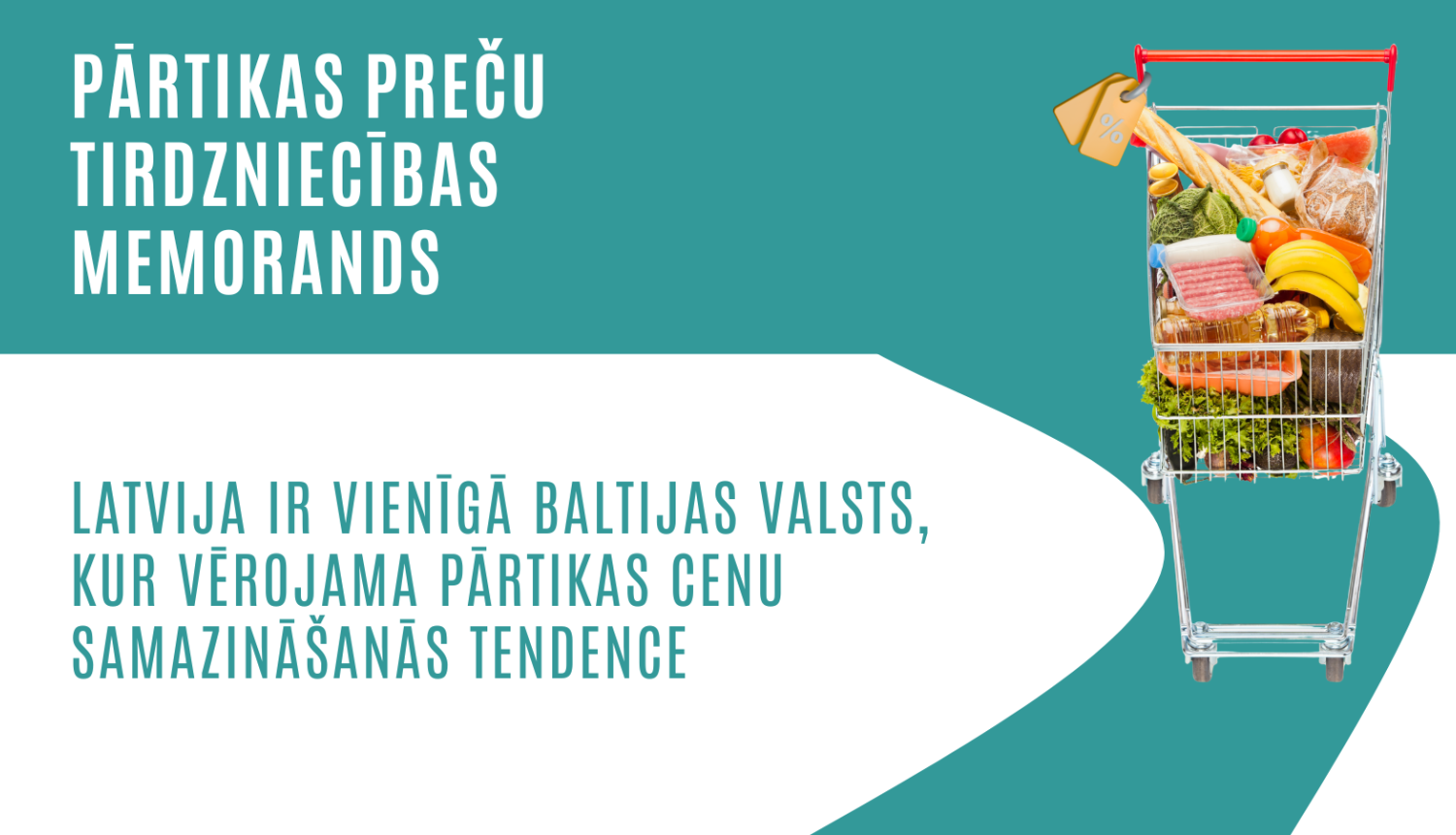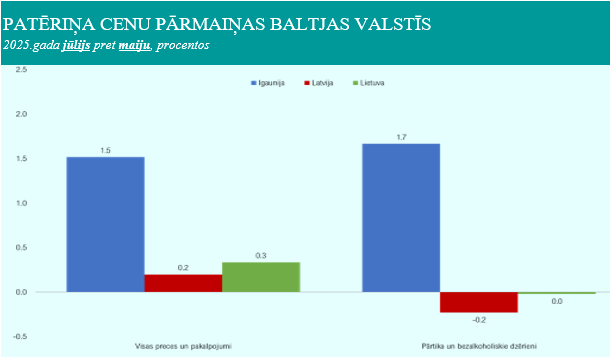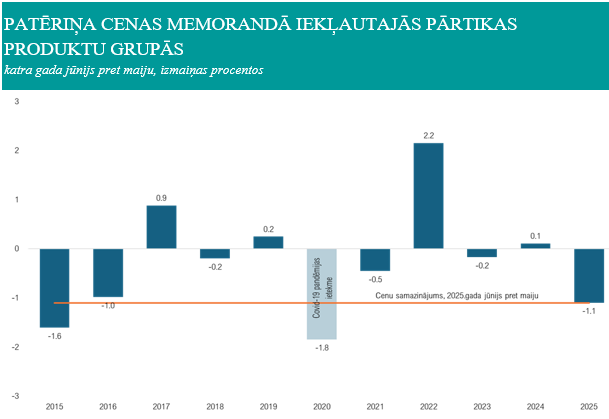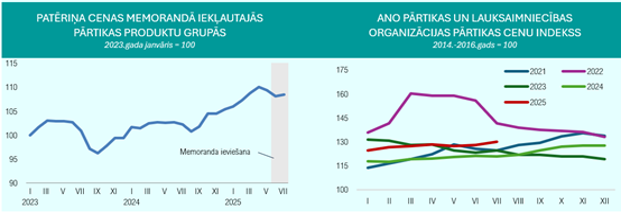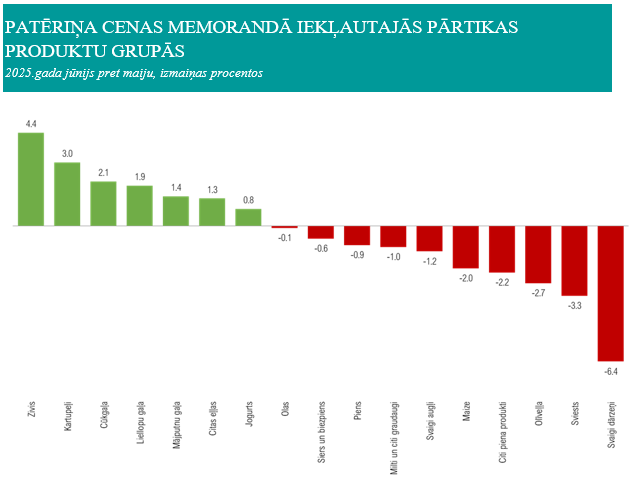The Ministry of Economics emphasizes that only two months have passed since the conclusion of the food trade memorandum, so a complete assessment is not yet possible. However, the first available data show a positive trend. Latvia is the only Baltic country where food prices have decreased over the two-month period. Comparing July with May, it can be concluded that, despite overall inflation and price increases, prices in the food and non-alcoholic beverages segment have specifically decreased by 0.2%. In contrast, in Estonia and Lithuania, they either increased or remained unchanged.
Initial Trends
In June, prices for most food subgroups included in the memorandum decreased by 1.1%, marking the fastest decline since 2015 (excluding the COVID-19 period). In July, prices increased by 0.3%, but this was primarily driven by external factors – a rise in global food prices (+7.6% year-on-year), especially in the meat and vegetable oil segments, as well as seasonal and weather-related factors.
Looking at this trend over the two-month period, it can be concluded that prices in these subgroups have decreased. The contribution of these groups to the overall decline in food prices was greater than that of other food product categories, indicating the potential initial effectiveness of the memorandum. At the same time, it is important to note that the price reduction for food products occurred despite the fact that the FAO Food Price Index increased in 2025, including in June and July. (See Figure 3)
It is important to emphasize that the price reduction persisted in several essential food subgroups – flour and cereals, pork, yogurt, cheese, butter, and fresh vegetables – which are part of the core basket of basic food products for households.
Why was the memorandum created?
The memorandum on food product trade was developed to promote lower prices and better availability of essential food products for residents, especially for those who are economically most vulnerable. In Latvia, more than one-fifth, or nearly 22%, of the population is at risk of poverty – one of the highest rates in the European Union. In 2023, 399,000 people in Latvia were at risk of poverty. Therefore, the low-price basket initiative is a measure specifically aimed at ensuring that all residents of Latvia can purchase basic food products at affordable prices. Even a small price reduction can have a significant impact on household budgets and the overall well-being of this segment of society.
Jānis Salmiņš, Deputy Secretary of State at the Ministry of Economics:
“We see that Latvia is the only Baltic country where prices have decreased following the introduction of the food price memorandum. This proves that we are moving in the right direction. The low-price basket initiative was created to help those for whom food accessibility is most critical – low-income families, seniors, and families with many children. We will continue to carefully monitor prices and cooperate with all signatories of the memorandum to ensure the benefits are felt both in the medium and long term.”
The Ministry of Economics will continue to monitor food price changes and publish comparative data to ensure transparency and fair competition in the food market.
Raimonds Lapiņš, Head of the Central Statistical Bureau:
“The current consumer price index covers a very wide range of products and services. As a small open economy, Latvia is significantly affected by price changes on world markets. To reduce the impact of external factors on price comparisons, the Cabinet of Ministers on Tuesday approved the Central Statistical Bureau’s ability to collect data on food prices in supermarkets. Using this data, the CSB will create an index that the Ministry of Economics and the public can use to track how prices for various food products are changing.”



